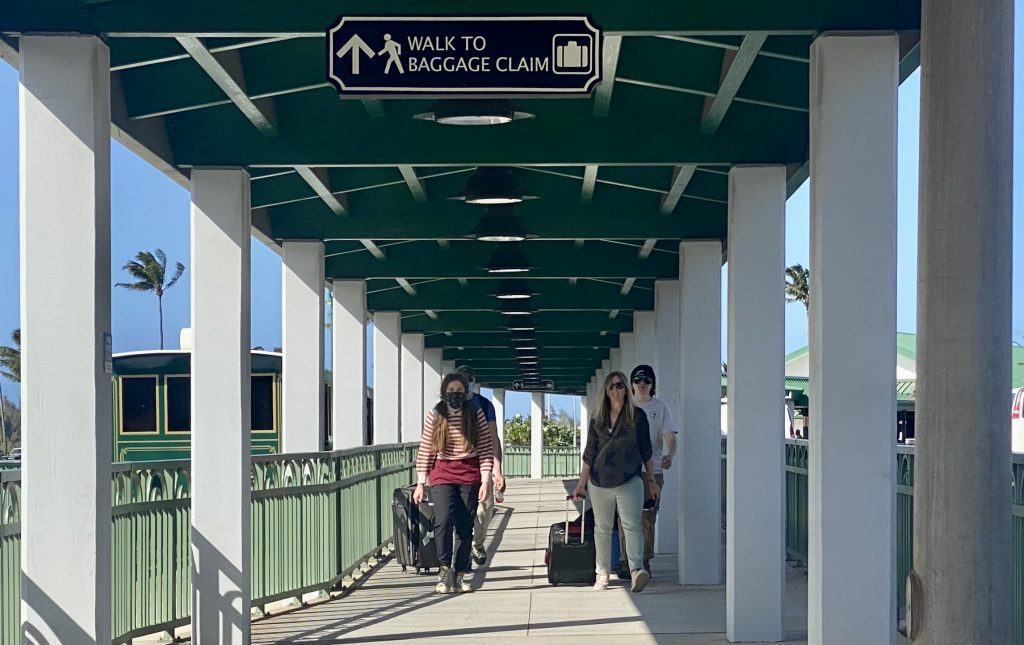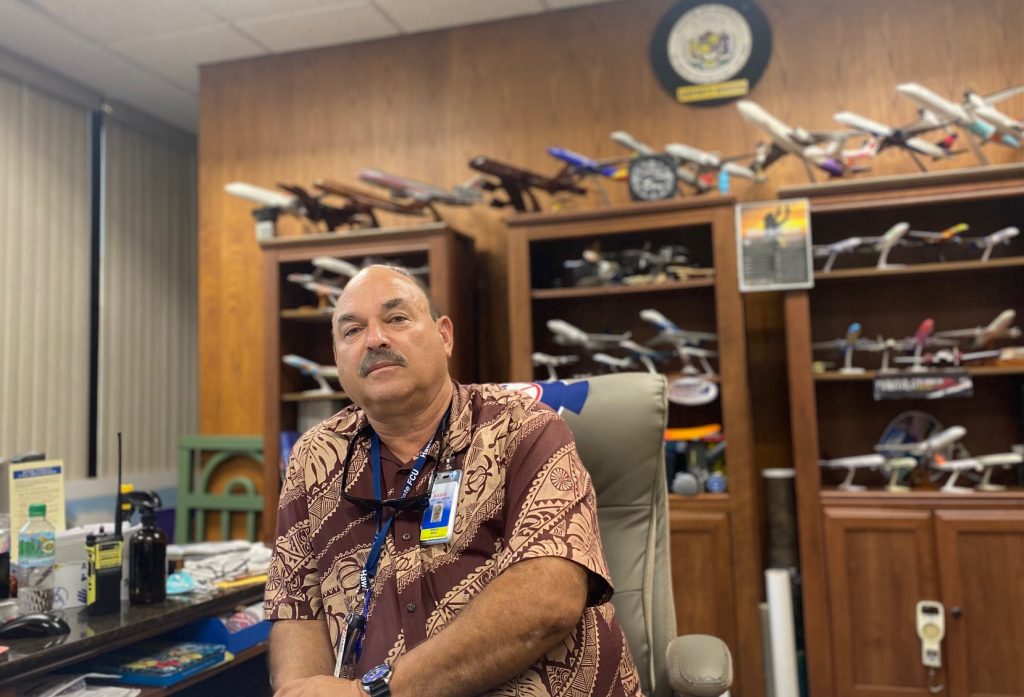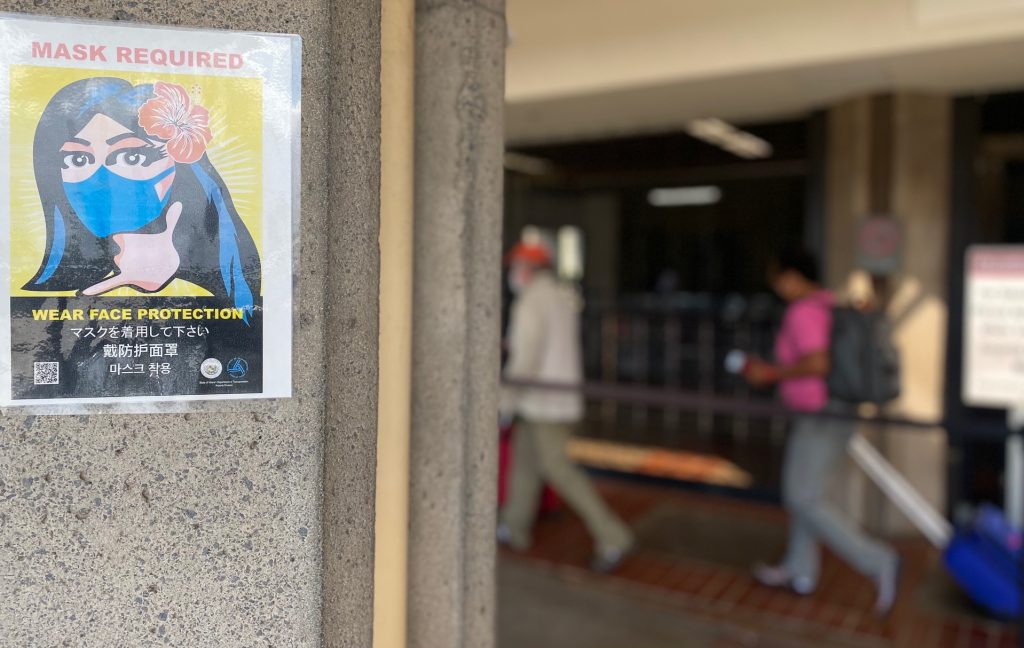Maui airport sees faster processing, fewer disorderlies in wake of Safe Travels


The leader of Maui district airports said Kahului Airport processing times and disorderly traveler incidents have subsided since Hawaiʻi’s Safe Travels program was lifted three weeks ago.
The statewide program launched Oct. 15, 2020, as a way to reopen tourism by allowing travelers to bypass quarantine with a negative test, then with vaccination proof. It ended March 26.
“We’ve had a huge reduction in disorderlies,” Maui District Airports Manager Marvin Moniz told Maui Now recently. “We had upset people every day. I don’t know that we went a day without someone upset.”
“Even from the passenger experience, it’s a lot more relaxing now,” he added. “They were really tense.”
Moniz said many trans-Pacific passengers had negative COVID-19 tests from places that were not on the state’s “trusted partner” list. When they deplaned in Maui, they were angry to learn they had to quarantine for more than a week.
Some even purchased airfare to go back to the Mainland and obtain an approved test, then return to Maui due to expensive hotel and car reservations that were nonrefundable, Moniz said.
Over the duration of the program, there were about two dozen arrests at Kahului Airport for violations of public health emergency rules, the airport district manager said. Airport police were assisted by Maui Police Department when incidents escalated.
The director said that some arrivals on private jets thought they could bypass the program, but he had a team of screeners deployed to the separate deplaning area.
“We had a manifest for every private jet that came in, and we sent a screening crew there,” Moniz said. “They thought there was a way to circumvent the system, but we covered that.”
Another change at Maui’s main airport since Safe Travels ended is a reduction in processing time by 20 minutes to a half hour.
Before airline pre-checks that gave wristbands to passengers who passed screening, some processing times reached 90 minutes or so during peak arrival hours, Moniz said.
About 100 people were temporarily hired at the airport by the state for Safe Travels screening and related health work. Many moved on to get jobs with rental car agencies and other airport related work.
All airport staff put in long hours during the program, he added.
“I think the end result was that we were among the lowest death rates in the nation,” Moniz said. “As much as the traveler was inconvenienced, the numbers showed that the process paid off.”
Maj. Gen. Kenneth Hara, director of the Hawaii Emergency Management Agency, recently told The Star Advertiser that it’s unlikely the state would ever reinstate Safe Travels Hawaiʻi, which had a price tag of $37 million, in its current form.
However, the article said the Safe Travels web application is being retained in case there is a need to restart the program in other forms.
Moniz said that airports continue to look to the US Centers for Disease Control and Prevention, along with other agencies, for leadership and direction.
“If need be, we can fire up the process again, if we had another major outbreak,” he said. “We have historical experience and we can get better at responding. This came out of nowhere, and now all agencies, everybody, can do a lot better if it indeed happens again.”
CDC in a news release Wednesday said its mask order will be extended to May 3 while it monitors the spread of omicron, especially the BA.2 subvariant that now makes up more than 85% of US cases.
“Since early April, there have been increases in the seven-day moving average of cases in the U.S.,” the release said. “The CDC Mask Order remains in effect while CDC assesses the potential impact of the rise of cases on severe disease, including hospitalizations and deaths, and healthcare system capacity.”
The rule requires all people to wear masks while at airports, bus or ferry terminals, train and subway stations, U.S. ports of entry and other locations where people board public transportation.
Nationwide, several incidents have escalated in planes over passengers refusing to wear masks, resulting in arrests.









